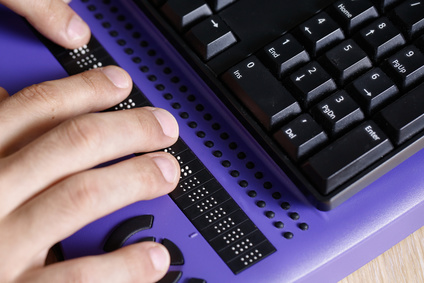The U.S. District Court for the Northern District of Illinois recently held that a title insurer may exclude coverage under the exception for defects “created, suffered, assumed, or agreed to by the insured claimant” without intentional or wrongful conduct by the insured. In so ruling, the Court also held that the Illinois statute for bad faith denial of coverage by insurers did not apply to title insurers. A copy of the opinion in Bank of America, NA v. Chicago Title Insurance Company is available at: Link to Opinion. In 2007, a developer sought to purchase real estate in Yorkville, Illinois, to…
Posts published in July 2017
The District Court of Appeal of the State of Florida, Second District, recently held that where loan documents provided that Florida law applied to foreclosure claims, the trial court erred in applying Texas law because the deficiency claim in the case was part of the Florida foreclosure process. A copy of the opinion in Bonita Real Estate Partners, LLC v. SLF IV Lending, L.P. is available at: Link to Opinion. Two limited liability companies and their principals borrowed $6.1 million to develop real estate, signing a promissory note, mortgage and personal guarantees. The loan documents provided that they would be…
The U.S. Court of Appeals for the Fourth Circuit recently held that the federal Servicemembers Civil Relief Act (SCRA) does not apply to a mortgage loan obligation incurred while a borrower is a member of the military, even where he subsequently leaves and then later re-enlists in the military prior to a foreclosure sale. A copy of the opinion in Sibert v. Wells Fargo Bank, NA is available at: Link to Opinion. The borrower obtained a mortgage loan to purchase his home from the lender while he was serving in the U.S. Navy. After his discharge from the Navy, the borrower…
A recent decision from the Third Circuit Court of Appeals examines both the provision of consent under the federal Telephone Consumer Protection Act (TCPA) and the bona fide error defense for debt collectors under the federal Fair Debt Collection Practices Act (FDCPA). The decision has dire implications for debt collectors, creditors and any commercial enterprise using telephone technology and QR codes in communicating with customers. A copy of the decision in Daubert v. NRA Group, LLC is available at: Link to Opinion. First up is the TCPA. The trial court ruled that the collection agency violated the TCPA when it used…
The District Court of Appeal of the State of Florida, Fourth District, recently affirmed a final judgment in favor of a borrower because the foreclosing mortgagee failed to file the original allonge to the note, holding that as a result the mortgagee lacked standing to foreclose. A copy of the opinion in U.S. Bank National Assoc., etc. v. Jean Kachik is available at: Link to Opinion. A mortgagee sued to foreclose the mortgage, attaching copies of the promissory note and an “Endorsement and Assignment of Note” to the complaint. The endorsement was “blank.” At trial, the mortgagee offered the original note…
The Illinois Court of Appeals, First District, recently determined that a borrower in a foreclosure matter did not have standing to challenge whether the mortgagee’s notice of sale was in violation of the Illinois Human Rights Act (IHRA). Following the entry of a judgment of foreclosure, the plaintiff mortgagee published its notice of sale, in which the mortgagee required that anyone attending the sale possess a “photo identification issued by a government agency.” The mortgagee purchased the property at the sale, and then moved for an order confirming the sale. The borrower objected to the mortgagee’s motion, arguing that the…
The U.S. Court of Appeals for the Ninth Circuit recently held that a bankruptcy trustee was authorized to sell real estate free and clear of unexpired leases under 11 U.S.C. § 363(f), and the sale was not a rejection of the unexpired leases and therefore did not implicate 11 U.S.C. § 365(h). In so ruling, the Ninth Circuit adopted the minority approach established in Precision Indus., Inc. v. Qualitech Steel SBQ, LLC, 327 F.3d 537 (7th Cir. 2003), which held that sections 363 and 365 may be given full effect without coming into conflict with one another. By allowing the…
The U.S. District Court for the Southern District of Florida recently held, after a non-jury trial, that a regional supermarket chain violated the federal Americans with Disabilities Act (ADA) because its website was inaccessible to the visually impaired. A copy of the Verdict and Order in Gil v. Winn-Dixie Stores, Inc. is available at: Link to Opinion. The plaintiff, a legally-blind customer of the supermarket who also suffers from cerebral palsy, sued under the ADA, 42 U.S.C. §§ 12181-12189, alleging that its website was not accessible, seeking declaratory and injunctive relief and attorney’s fees and costs. The parties did not dispute…
The U.S. District Court for the District of New Jersey recently concluded that a putative class representative did not have standing under Spokeo to sue for a technical violation of the federal Fair and Accurate Credit Transactions Act (FACTA). The Court identified the issue as whether the consumer alleges a sufficiently “concrete” harm to confer standing, based on a technical violation of FACTA, 15 U.S.C. § 1681, et seq., when a retail store printed the first six numbers and last four numbers of his credit card on his transaction receipts. Relying on the Supreme Court’s ruling in Spokeo Inc. v.…
The U.S. Court of Appeals for the Fifth Circuit recently affirmed summary judgment under the Fair Debt Collection Practices Act (FDCPA) in favor of the debtor and against a debt collector, where the debt collector failed to mark the debtor’s account as disputed when it credit reported the account. The debt collector admitted that it had not marked the account as disputed because it incorrectly believed that credit reporting a debt as disputed was subject to the requirements of 15 U.S.C. § 1692g, which governs validation of a debt and the treatment of disputed debts. In so ruling, the Fifth…
The U.S. Court of Appeals for the Eleventh Circuit recently held that section 707(b) of the Bankruptcy Code, which allows a bankruptcy court to dismiss a chapter 7 petition if it finds that relief would be an “abuse” as defined in that section, applies to a petition initially filed under chapter 13 and converted to chapter 7. A copy of the opinion in Pollitzer v. Gebhardt is available at: Link to Opinion. A debtor filed bankruptcy under chapter 13 of the Bankruptcy Code, which allows a debtor to restructure his debts and keep his assets by submitting a plan that provides…
The District Court of Appeal of Florida, Fifth District, recently held that a foreclosure complaint was not time-barred despite the initial default occurring outside Florida’s five-year statute of limitations, because the mortgagee both alleged and proved that the borrowers defaulted on every payment due from the date of the initial default. In so ruling, the 5th DCA applied the standards set forth by the Florida Supreme Court in Bartram v. U.S. Bank Nat’l Ass’n, to conclude that the foreclosure action was not barred by the five-year statute of limitations under Fla. Stat. § 95.11(2)(c), because the mortgage was in a…












